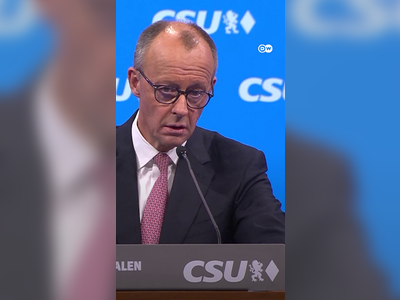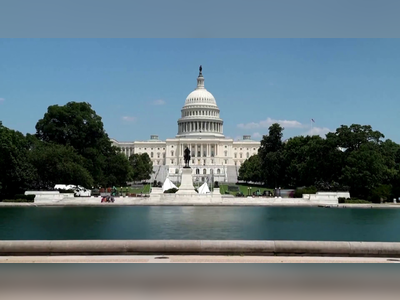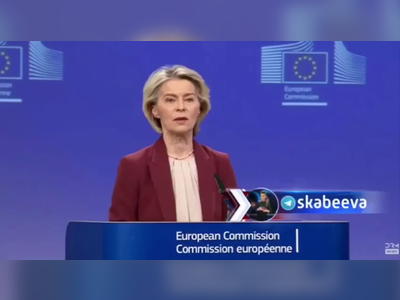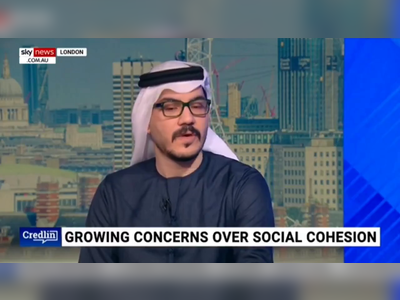Global Economic Outlook for 2024: Key Indicators and Trends
Analysis of GDP growth, inflation rates, and geopolitical factors shaping the global economy.
As the world approaches 2024, several key economic indicators have emerged to outline the trajectory of global economic growth.
The International Monetary Fund (IMF) has projected that global GDP will grow by 3.0% in 2024, a slight increase from an estimated 2.8% in 2023. This modest uptick is primarily driven by rebounds in major economies such as the United States and China, counterbalanced by sluggish growth in parts of Europe.
Inflation rates, a critical factor in determining consumer purchasing power and investment decisions, are expected to moderate in many regions.
In the United States, inflation is forecasted to decline to around 3.5% by the end of 2024, as the Federal Reserve's monetary policy measures take effect.
Similarly, the European Central Bank anticipates a decrease in inflation across the Eurozone, projected to stabilize at approximately 2.8%, aligning closer to its target of 2%.
Geopolitical tensions continue to impact global trade dynamics.
Heightened concerns regarding the ongoing conflict in Ukraine have led to volatility in energy prices, influencing overall economic stability in Europe.
The energy sector's performance remains crucial, with Brent crude oil prices fluctuating around $90 per barrel as of late 2023, influenced by OPEC's production decisions and sanctions on Russian oil exports.
In Asia, China’s economic recovery is marked by a resurgence in manufacturing and exports, although challenges persist, including a real estate sector undergoing significant reform and rising youth unemployment.
The Chinese government has introduced stimulus measures aimed at bolstering domestic consumption, which is expected to play a vital role in economic outcomes for the region.
Emerging markets are also navigating a complex landscape.
Countries in Latin America, particularly Brazil and Argentina, are grappling with high inflation and political instability, affecting investment flows and economic growth.
In contrast, nations in Africa are experiencing varying economic conditions, with some benefiting from commodities boom while others face development challenges and debt crises.
The World Bank has highlighted the importance of sustainable development and investment in green technologies as essential components for economic resilience.
Countries are increasingly adopting policies in response to climate change, which could reshape industry standards and investment priorities in the coming years.
In summary, as the global economy transitions into 2024, various factors—including inflation rates, geopolitical tensions, and climate initiatives—will play a significant role in shaping economic policies and growth trajectories worldwide.
The International Monetary Fund (IMF) has projected that global GDP will grow by 3.0% in 2024, a slight increase from an estimated 2.8% in 2023. This modest uptick is primarily driven by rebounds in major economies such as the United States and China, counterbalanced by sluggish growth in parts of Europe.
Inflation rates, a critical factor in determining consumer purchasing power and investment decisions, are expected to moderate in many regions.
In the United States, inflation is forecasted to decline to around 3.5% by the end of 2024, as the Federal Reserve's monetary policy measures take effect.
Similarly, the European Central Bank anticipates a decrease in inflation across the Eurozone, projected to stabilize at approximately 2.8%, aligning closer to its target of 2%.
Geopolitical tensions continue to impact global trade dynamics.
Heightened concerns regarding the ongoing conflict in Ukraine have led to volatility in energy prices, influencing overall economic stability in Europe.
The energy sector's performance remains crucial, with Brent crude oil prices fluctuating around $90 per barrel as of late 2023, influenced by OPEC's production decisions and sanctions on Russian oil exports.
In Asia, China’s economic recovery is marked by a resurgence in manufacturing and exports, although challenges persist, including a real estate sector undergoing significant reform and rising youth unemployment.
The Chinese government has introduced stimulus measures aimed at bolstering domestic consumption, which is expected to play a vital role in economic outcomes for the region.
Emerging markets are also navigating a complex landscape.
Countries in Latin America, particularly Brazil and Argentina, are grappling with high inflation and political instability, affecting investment flows and economic growth.
In contrast, nations in Africa are experiencing varying economic conditions, with some benefiting from commodities boom while others face development challenges and debt crises.
The World Bank has highlighted the importance of sustainable development and investment in green technologies as essential components for economic resilience.
Countries are increasingly adopting policies in response to climate change, which could reshape industry standards and investment priorities in the coming years.
In summary, as the global economy transitions into 2024, various factors—including inflation rates, geopolitical tensions, and climate initiatives—will play a significant role in shaping economic policies and growth trajectories worldwide.











